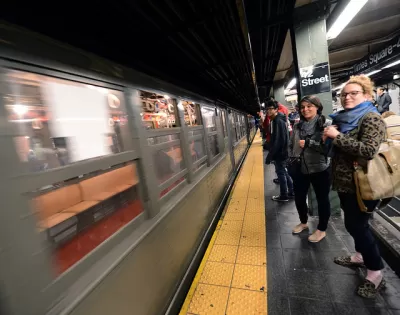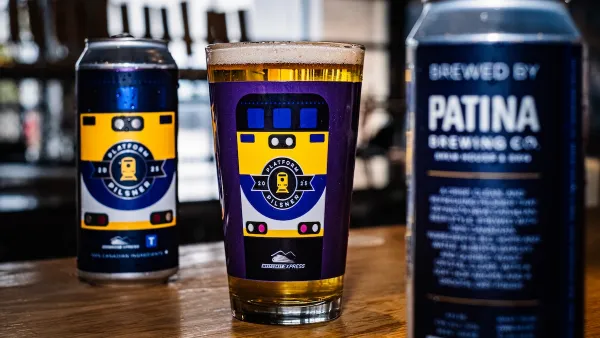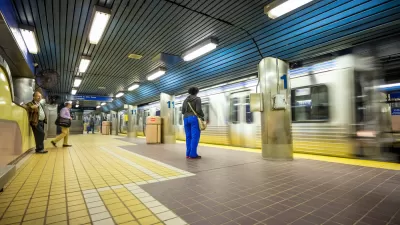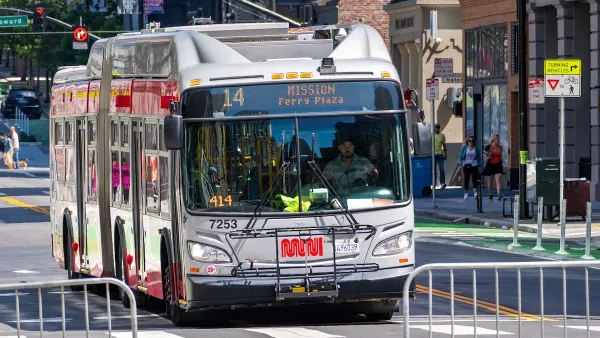One writer argues that improving transit in major cities would boost local economies and prove that positive change is possible.

Writing in Governing, Aaron M. Renn lays out an argument for prioritizing public transit reform in big cities. “Not only is it a genuinely critical need, but it’s an area where tangible progress can be made and the public will see it right away,” Renn writes. In big cities such as New York, Chicago, and Boston—even in the age of remote work—transit “enables the dense, large-scale agglomeration of workers that gives central business districts the highest economic output in the country.”
“The problems are serious, but transit has a number of characteristics that make it a great place to focus governance energy on fixing.” First, Renn writes, it’s not reinventing the wheel: there are many global examples of functional, efficient public transit systems to draw lessons from. At the same time, “Most of the states where these systems are located have little if any anti-transit sentiment,” making transit reform a more easily achievable goal than other, more politicized issues.
For Renn, improving transit is about more than making transportation more effective for urban residents. Transit reform could help restore public faith in government and “create momentum” for solving much thornier challenges.
FULL STORY: Why We Can Fix Big-City Transit — and Why We Need To

Planetizen Federal Action Tracker
A weekly monitor of how Trump’s orders and actions are impacting planners and planning in America.

Map: Where Senate Republicans Want to Sell Your Public Lands
For public land advocates, the Senate Republicans’ proposal to sell millions of acres of public land in the West is “the biggest fight of their careers.”

Restaurant Patios Were a Pandemic Win — Why Were They so Hard to Keep?
Social distancing requirements and changes in travel patterns prompted cities to pilot new uses for street and sidewalk space. Then it got complicated.

Platform Pilsner: Vancouver Transit Agency Releases... a Beer?
TransLink will receive a portion of every sale of the four-pack.

Toronto Weighs Cheaper Transit, Parking Hikes for Major Events
Special event rates would take effect during large festivals, sports games and concerts to ‘discourage driving, manage congestion and free up space for transit.”

Berlin to Consider Car-Free Zone Larger Than Manhattan
The area bound by the 22-mile Ringbahn would still allow 12 uses of a private automobile per year per person, and several other exemptions.
Urban Design for Planners 1: Software Tools
This six-course series explores essential urban design concepts using open source software and equips planners with the tools they need to participate fully in the urban design process.
Planning for Universal Design
Learn the tools for implementing Universal Design in planning regulations.
Heyer Gruel & Associates PA
JM Goldson LLC
Custer County Colorado
City of Camden Redevelopment Agency
City of Astoria
Transportation Research & Education Center (TREC) at Portland State University
Camden Redevelopment Agency
City of Claremont
Municipality of Princeton (NJ)





























